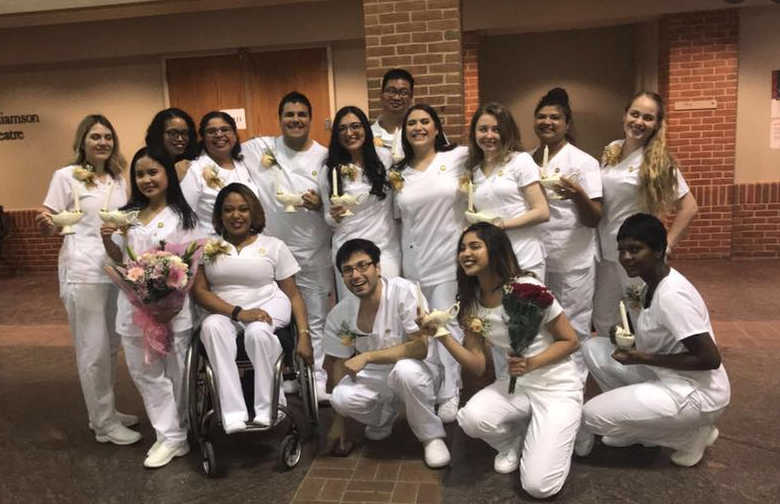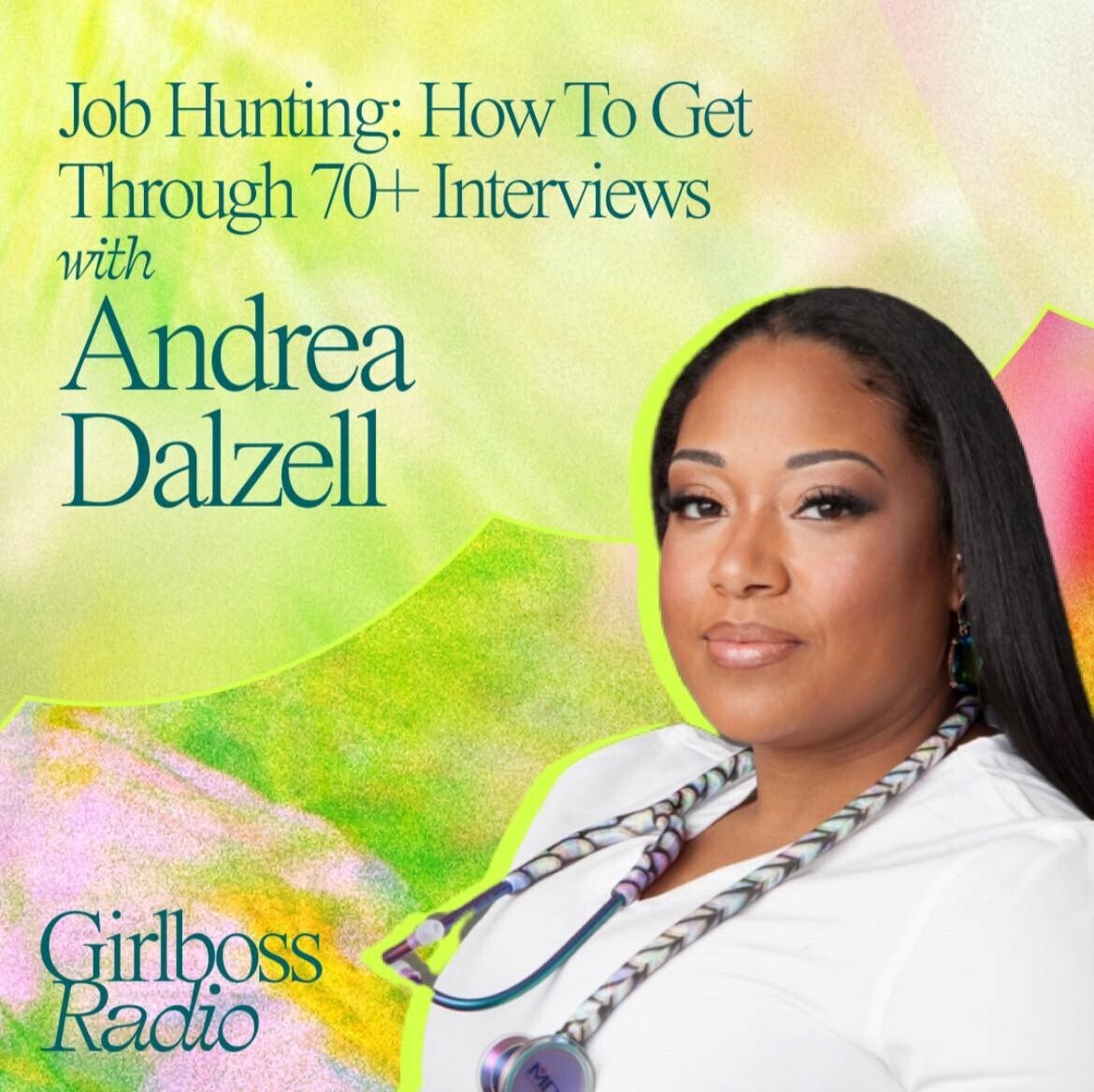The nurse in a wheelchair took the stage during the COVID-19 pandemic
- 6 minutes to read
- 03 January 2022
- Steve
The nurse in a wheelchair took the stage during the COVID-19 pandemic
Andrea Dalzell is a 34-year-old medical-surgical nurse in a wheelchair and a keen activist for people with disabilities. She is the first registered nurse in a wheelchair in New York City and one out of around 20 registered nurses in wheelchairs working at the patient care unit in the United States. During the COVID-19 pandemic lockdown, Andrea worked in the frontline, saving the lives of COVID-19 patients in one of the busiest hospitals in New York City.

Andrea Dalzell: “the seated nurse”. (Source: Instagram @theseatednurse)
The reason Andrea wanted to become a nurse
Andrea was born able-bodied, but at the age of 5, she was diagnosed with a neurological condition called transverse myelitis — a disorder caused by inflammation of the spinal cord, which can cause pain, muscle weakness and paralysis. As a result, she developed paraplegia at 12 and started using wheelchairs ever since.
Andrea is a very social person. She joined the gospel choir in high school and went on trips. Like many others, she enjoyed her teenage and social life.
Due to her condition, Andrea has undergone 33 surgeries with tremendous pain. But, in her words, “no one should go through the pain that I have been through.” Therefore, at high school, she decided she would become a doctor to devise ways of curing pain.
Eventually, she got admitted into the City University of New York's College of Staten Island to study biology and neuroscience. However, she changed her decision and went on to study nursing. She says nursing is a profession that will bring her closer to the patients — just like the nurses who cared for her whenever her mother was absent. According to Andrea,
“I realized that doctors treat the disease and nurses treat the patient.”
The not-so-welcoming orientation
On the orientation day at the nursing school, Andrea encountered an unpleasant welcome. Barely 45 minutes into the orientation, a professor pulled her out because she was considered physically unfit for the profession's demands. Andrea felt statements like this undermine her dreams and determination. Through the help of the school's Office for Students with Disabilities and the Office for Diversity and Inclusion, she managed to stay in the program, but not without promising to communicate any accommodations she needed.
Admittedly, Andrea found the profession more demanding than expected, both physically and mentally. To meet the physical demands of her career, she started boxing to enhance her arm strength and fitness. The combination of mental and physical activity plus courage helped her through the nursing training. She could perform general nurse duties, including chest compressions which many see as undoable for wheelchair users. In 2018, she successfully passed her board exam and became a registered nurse.

Andrea and her nursing school classmates. (Source: Facebook @Andrea Dalzell)
Discrimination against people with disabilities in the workforce
After graduation, Andrea had so much difficulty getting a job. She got interviewed in 76 nursing positions, and even with her qualification and achievement, she got rejected. At the first interview, she never talked about her disability, thinking it was irrelevant.
As time went on, she decided to bring up her disability and present how she would handle nursing duties and special situations in a wheelchair. She hoped it would give her potential employers and co-workers confidence to hire her. Yet, she still got turned down by all of them.
Later during the COVID-19 pandemic, the demand for nurses increased, but Andrea's discrimination during job search was still there. She went to two interviews for dialysis positions. One claimed that they forgot they had made the appointment when they saw Andrea. Another thought nurses couldn't work in chairs.

“I had to learn that my value doesn't decrease based on the inability of others to see my Worth,” writes Andrea. (Source: Facebook @Andrea Dalzell)
Working at the COVID-19 unit in a wheelchair
Andrea's job search had a sudden twist as the demand for nurses continued to increase. On an online survey for nursing placement, she found the number of the human resources of a medical centre. She called to try her luck but reached the answering machine. Not expecting an answer to her voicemail, she was called back by the centre 15 minutes later and got hired for the job.
Andrea started working at the COVID-19 unit, where she cared for and supervised patients, especially those on oxygen ventilators. The pandemic became Andrea's opportunity to prove herself as a nurse. Her work has been recognised and featured by Forbes. She is also praised as one of the “heroic nurses” during the COVID-19 pandemic.
A mentor of Andrea remarked,
“It took a pandemic for this ‘seated’ nurse to get hired.”

Andrea working as a nurse during the COVID-19 pandemic. (Source: Instagram @shape)
In the interview below, Andrea shares one of her “funny experiences” when she started working at the COVID-19 unit – an experience that is no big deal to her but a classic jaw-dropping moment for her colleagues (after minute 2:30):
“Following a shift working together, one of my co-workers admitted that she was sorry that she had underestimated me in the beginning. That was a satisfying moment!”
In June 2020, Andrea finished her contract as a pandemic nurse regularly after four months. After that, she was back at square one for some time: again looking for new nursing positions and fighting discrimination along the way. Now, she works in a private school as a nurse consultant, and she has also found a job as assistant nurse manager for a primary care practice, combining clinical experience with administrative work. About herself, Andrea says,
“My mere presence in a clinical setting, allows patients to see themselves in a different light.”
Here is a recent and comprehensive interview with Andrea about many aspects of her life, such as being a nurse, but also an activist, social media influencer, educator, and athlete:
The one million dollar prize
On top of her nursing qualification, Andrea received multiple recognitions for her disability advocacy over the years. She won Ms Wheelchair New York in 2015 and featured in the Raw Beauty Project, a photo exhibit celebrating women with disabilities in different cities of the U.S. In 2021, she became New Mobility Person of the Year. Andrea has also interviewed for various magazines and T.V. shows, such as CBS New York last year.
In addition, Andrea is one of the three recipients of the inaugural Craig H. Neilsen Visionary Prize in 2020, endowed with one million U.S. dollars (!). It is given unrestrictedly to individuals who “are influential voices for the world of SCI, unafraid to take bold risks” and who “show great potential to expand or advocate for new ideas to enrich lives affected by SCI”.

In May 2021, Andrea joined a podcast about job hunting and shared tips to advocate for oneself and deal with rejection. (Source: Facebook @Andrea Dalzell)
Andrea's vision of true inclusion in the workforce
Andrea makes good use of the prize money: She recently started a non-profit organisation called The Seated Position to help people with disabilities gain professional employment. Her goal is to change the perception surrounding people with disabilities by encouraging equal opportunities, support and inclusion in the workforce. In a recent interview with the American Nurses Association Illinois, she said,
“Without disability inclusion, you could very well be limiting opportunities for your future selves.”
She hopes to see improvement in the standards of nursing practice. In addition, there should be more advocacy for people with disabilities as they can be as competent as able-bodied nurses and deserve equal employment opportunities.
Have you encountered challenges or even discrimination during your job search? Please share your stories with us!

